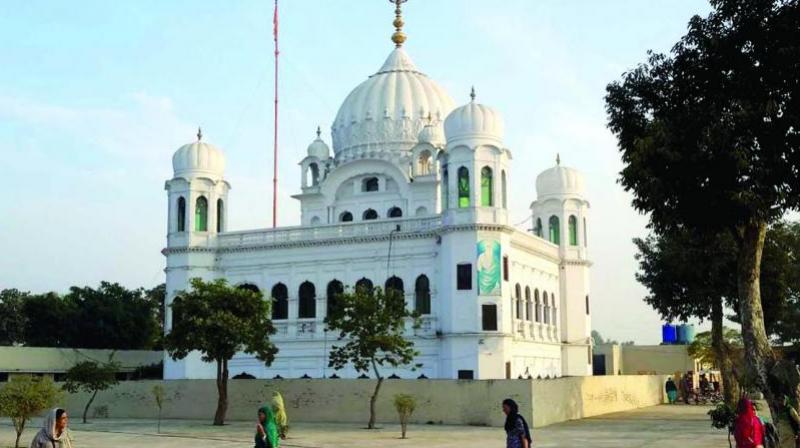Pak reconstitutes PSGPC list, drops pro-Khalistan member from Kartarpur talks
Officials of the two countries are slated to meet on July 14 to finalise modalities of the corridor and related technical issues.

New Delhi: Just a day ahead of the second round of talks between India and Pakistan over fixing of modalities of the Kartarpur corridor, Pakistan has reconstituted its Sikh Gurudwara Parbandhak Committee (PSGPC) list, thereby dropping the name of a pro-Khalistan member from talks.
On Friday, Pakistan, in an official statement, said, "The Federal Government (Federal Cabinet) has been pleased to re-constitute the Pakistan Sikh Gurudwara Parbandhak Committee."
Addressing India's concerns raised earlier, Pakistan removed the name of pro-Khalistani leader Gopal Singh Chawla from the list.
Officials of the two countries are slated to meet on July 14 to finalise modalities of the corridor and related technical issues.
The Kartarpur route along the India-Pakistan border is three kilometres away from Gurdaspur, Punjab.
Once opened, it would allow Sikh pilgrims direct access to the historic Gurdwara Darbar Sahib in Kartarpur, Pakistan, where Guru Nanak Dev died in 1539.
Sources added that the work on the corridor is expected to be completed by October 31, ahead of the 550th birth anniversary of Guru Nanak, the founder of Sikhism.
One of the main points in the discussion would be India's demand for the construction of a bridge by Pakistan in the creek area.
India has raised concerns regarding the possible flooding of Dera Baba Nanak due to the construction of an embankment-filled road on the Pakistani side.
While India has already been building a bridge on its side to provide all-weather connectivity for the Kartarpur corridor, it has urged Pakistan to build a similar bridge on their side as it would provide safe and secure movement of the pilgrims while also addressing concerns over flooding.
The other key issues on the table would be the number of pilgrims allowed to access the corridor, safe and unhindered movement of pilgrims throughout the year, whether they would travel as individuals or groups, and whether they would travel by transport or foot.
Additionally, India will spend Rs 500 crore to build the corridor. The money would be spent, among other things, on installing a high tech security and surveillance system to ensure the safety of pilgrims and creating an all-weather facility to cater to 10,000 pilgrims on special occasions and 5000 pilgrims on a daily basis.

